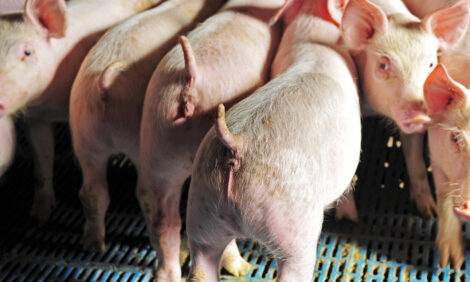



Strategy Laid out to Make British Farming More Competitive
UK - A four point strategy has been laid out by the British government to make British farming more competitive, more productive and more resilient. Chris Harris reports from the NFU conference in Birmingham.In the government’s long term economic plan for food and farming, secretary of state for the environment, food and rural affairs, Liz Truss sold the National Farmers’ Union Conference in Birmingham that more needed to be done to help British farming by cutting red tape and building resilience.
She said the four priorities were to:
- Enable a productive and resilient industry
- Open new markets at home and abroad
- Make EU rules work for UK farmers, and
- Protect the country from plant and animal disease.
“Modern food production needs technical, scientific and management know-how,” she told the conference.
“It is hungry for skilled people.”
Mrs Truss said that through Food Enterprise Zones the industry has been able to expand and add value to products by boosting local economies and joining up farming, manufacturing, distribution and retail firms.
She said there was a need to help farmers and food businesses deal with global market volatility and the burden of red tape that was weighing on farmers had to be reduced.
Mrs Truss urged the greater use of protected name status for food products to help market them on a global basis.
At present the UK has 62 protected names compared to France which has 219.
Mrs Truss also called on the European Agriculture Commissioner Philip Hogan to simplify the Common Agricultural Policy and look again at decisions over pesticides, which she said were holding arable farmers back.
“If we want out farmers to be able to compete, we have to enable them to grow what the market demands, not what the rules dictate,” she said.
“It is vital that decisions are made on the best available science.”
Mrs Truss said that current European rules will see one in six of the pesticide approved for use in the UK threatened through restrictions from the European Commission.
And she added that Europe also needs to embrace scientific advances in genetic modification.
“Europe needs to embrace scientific advances, many of them achieved here in Britain,” she said.






